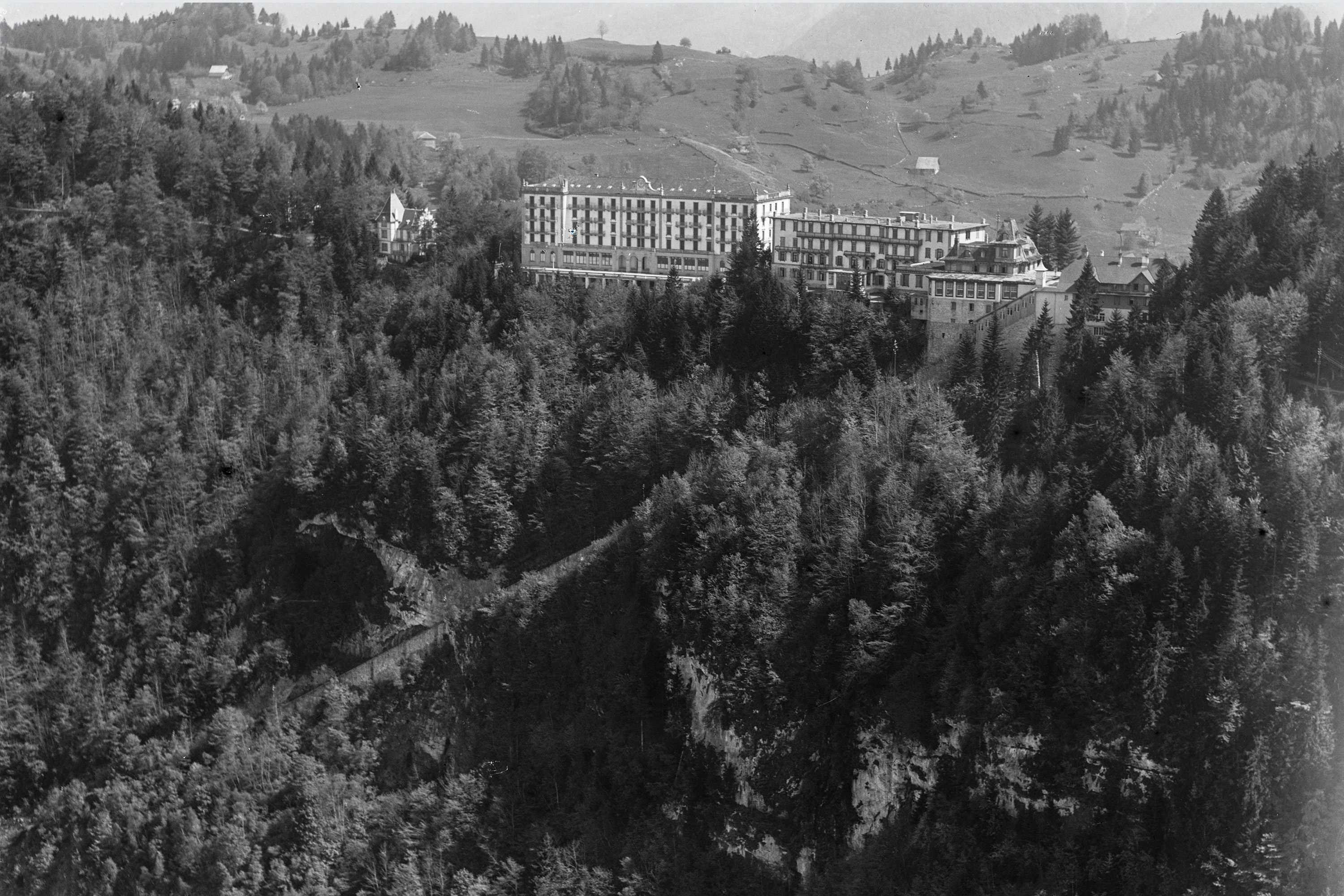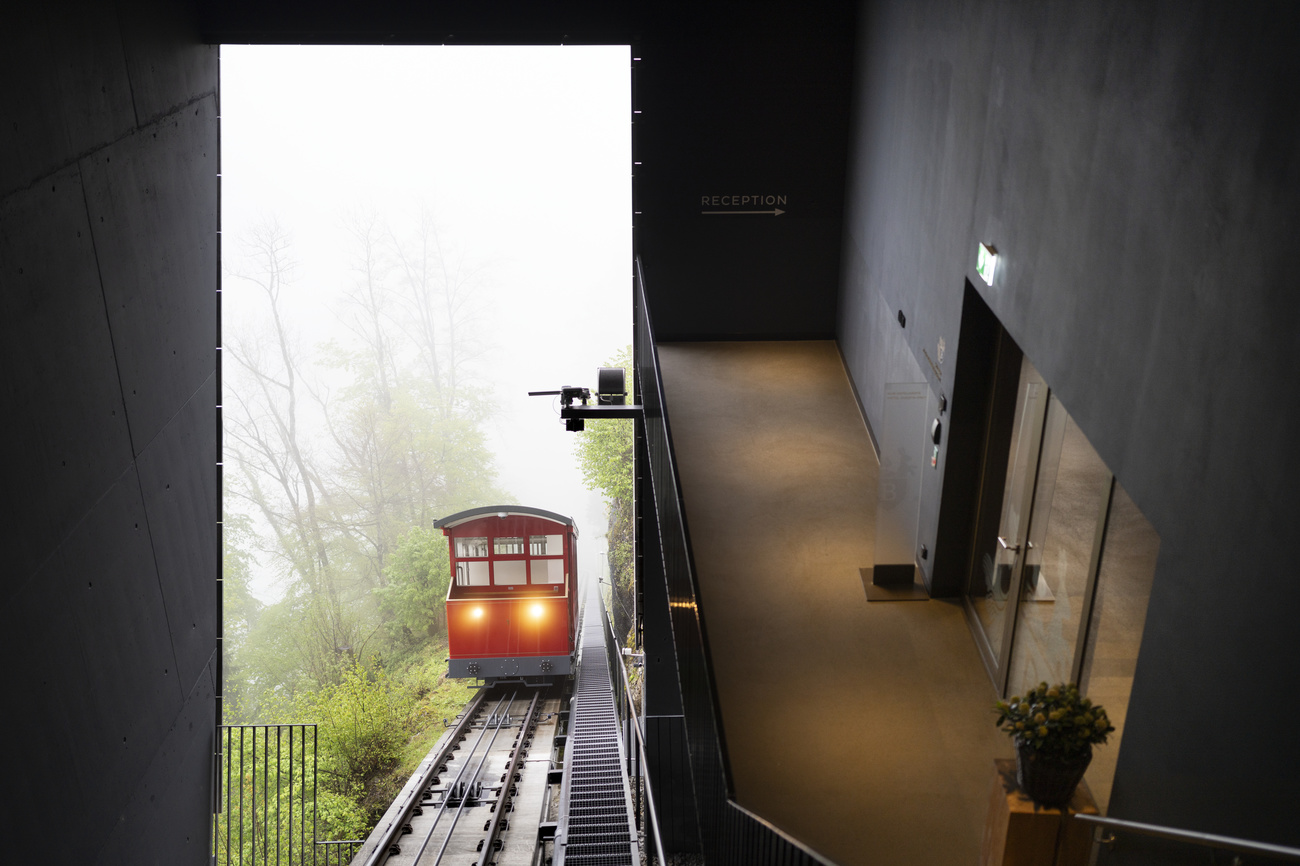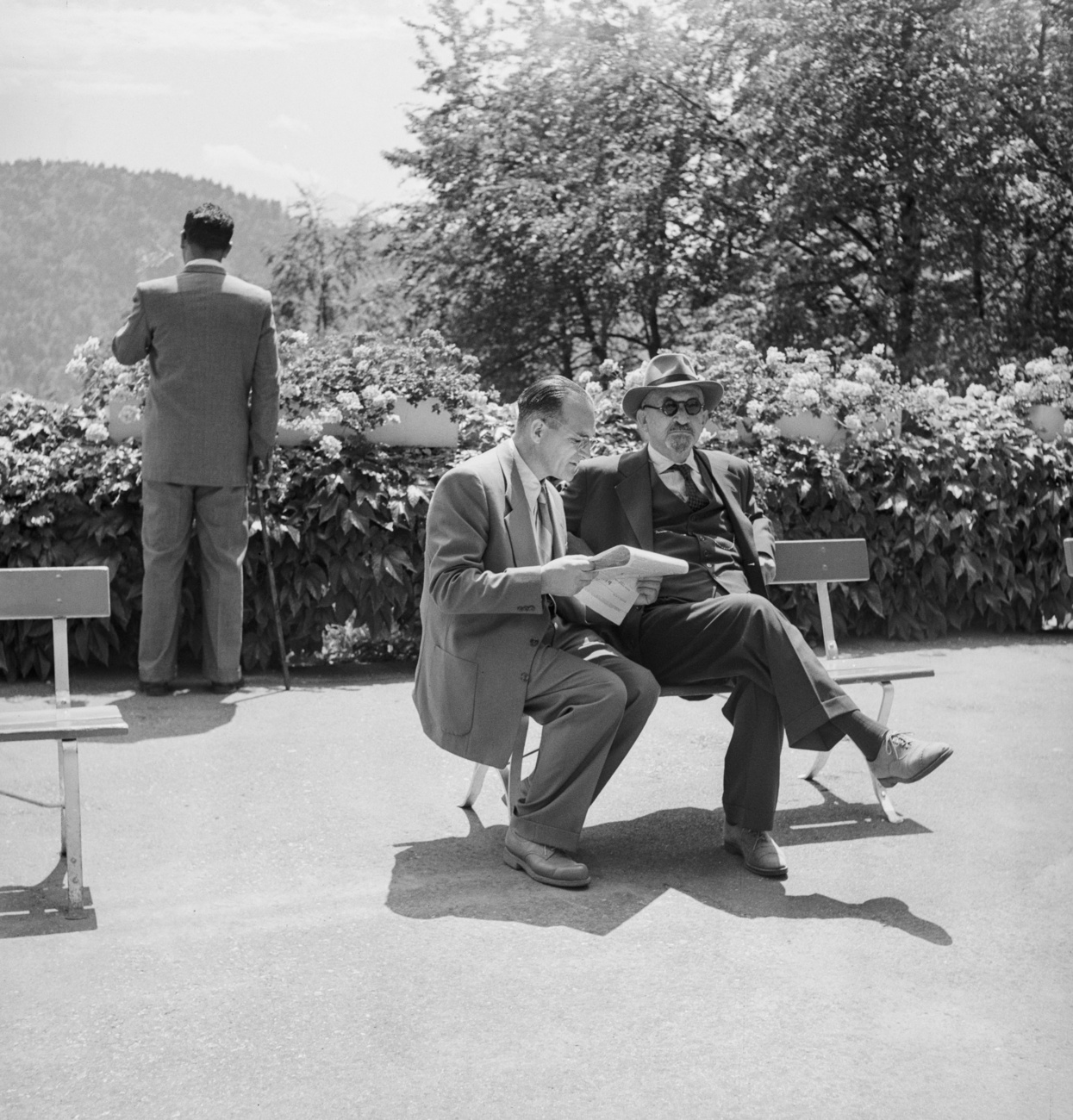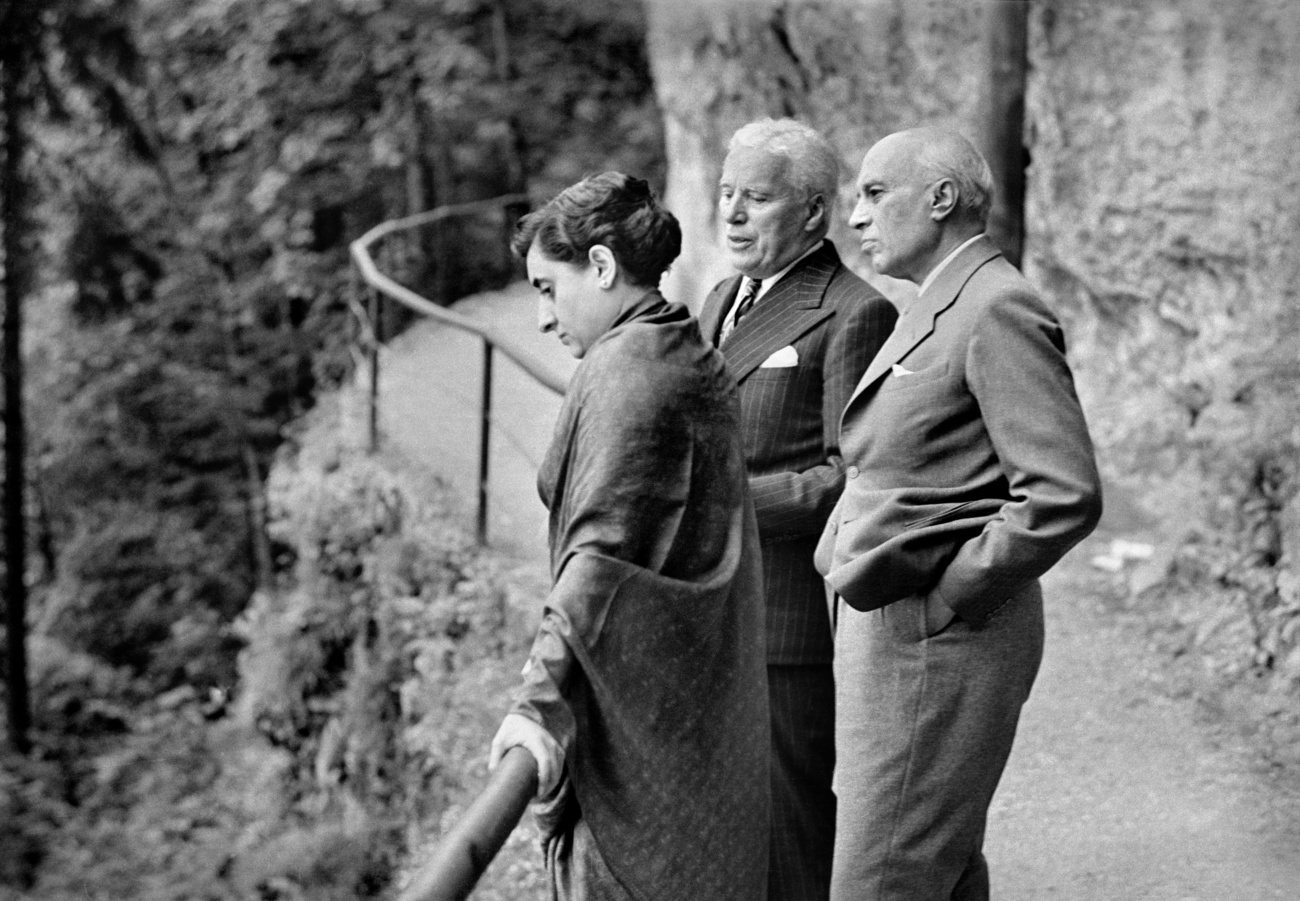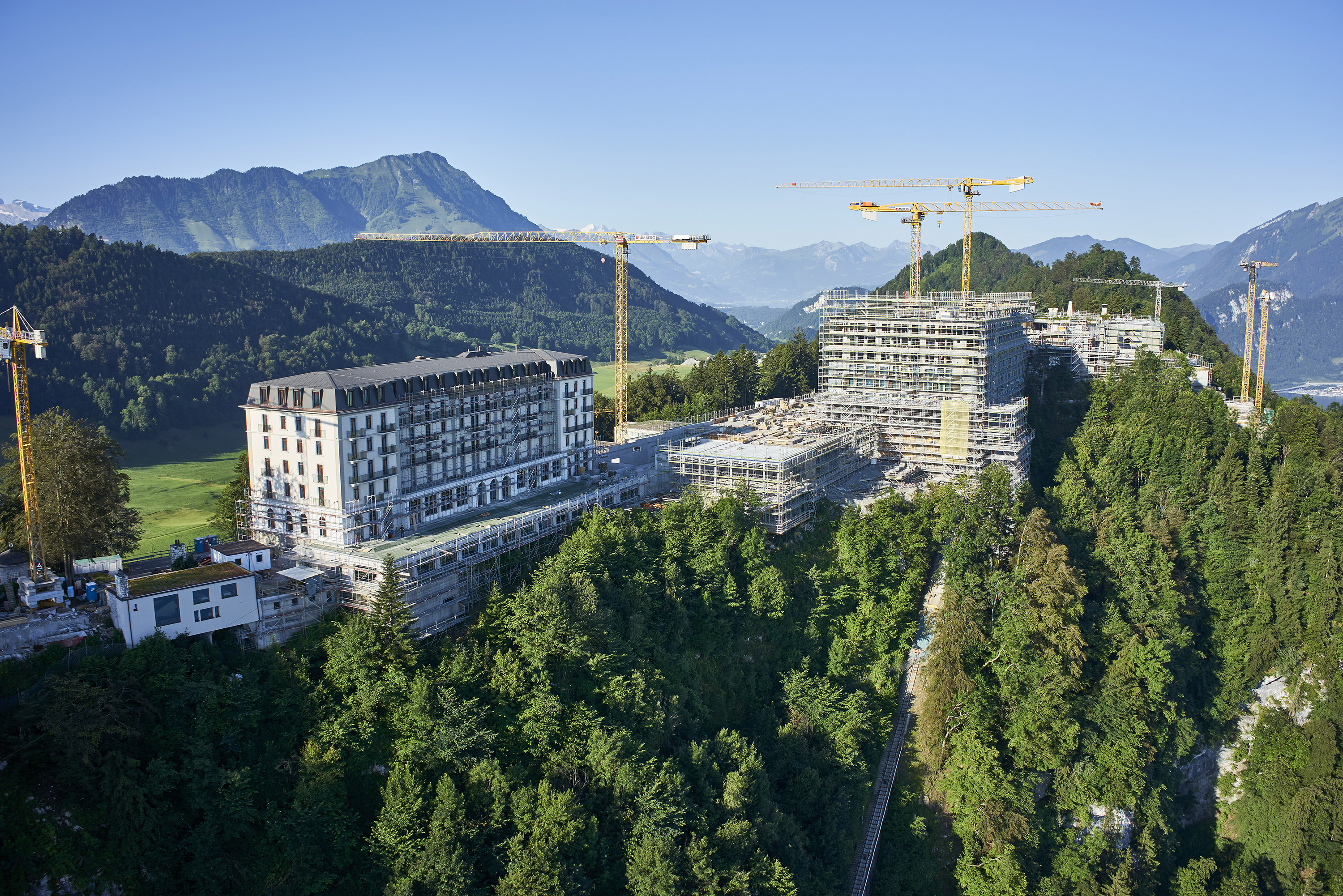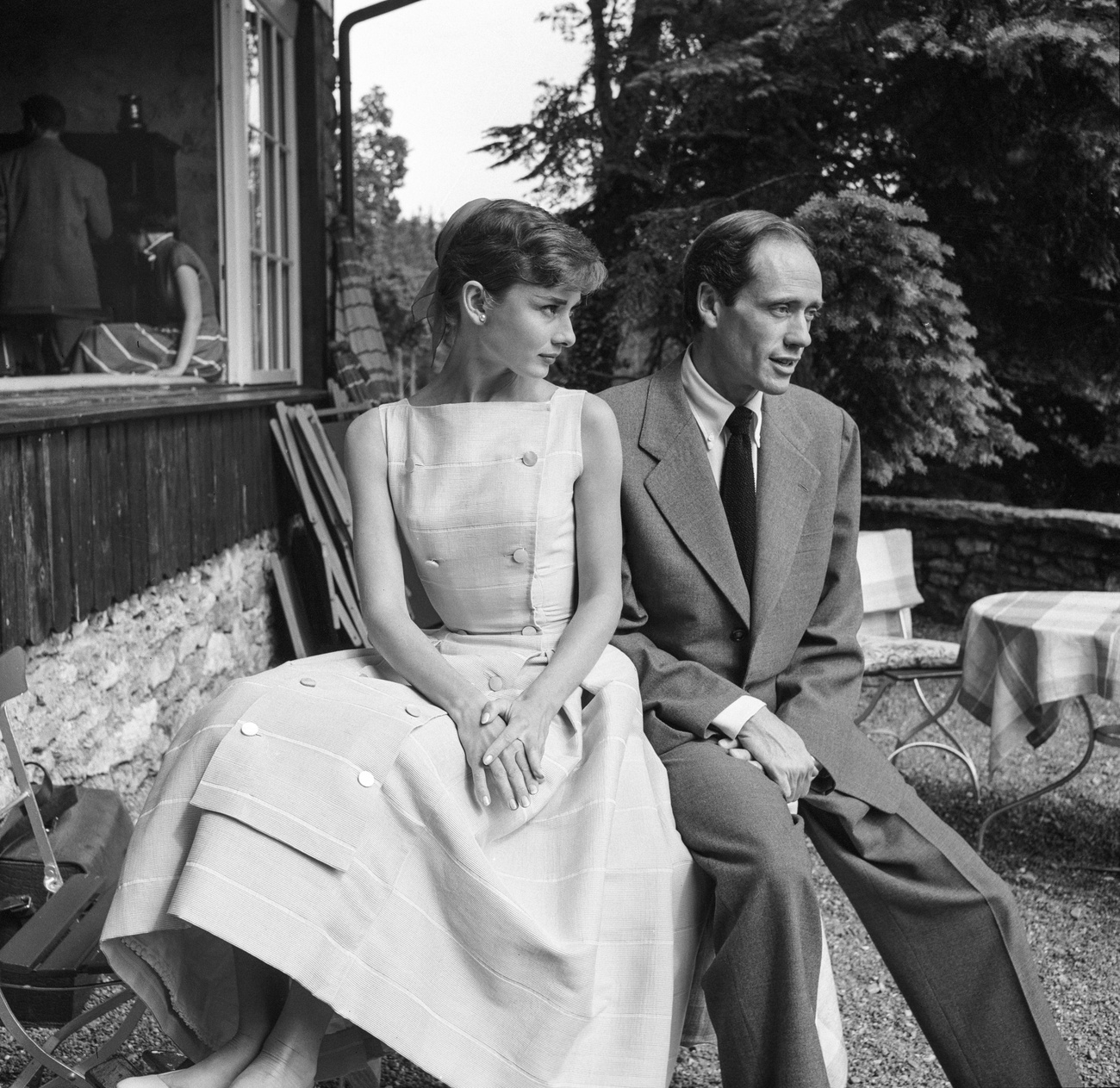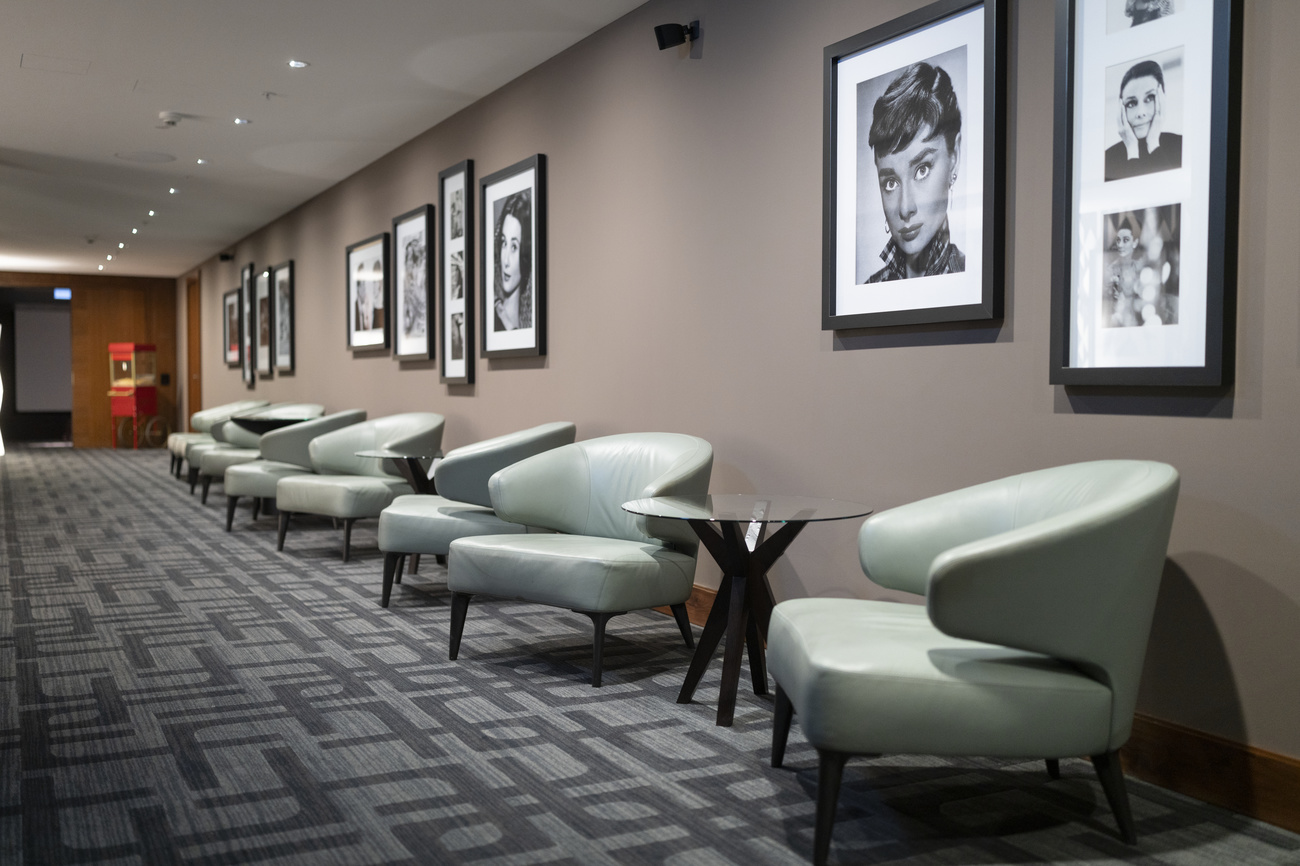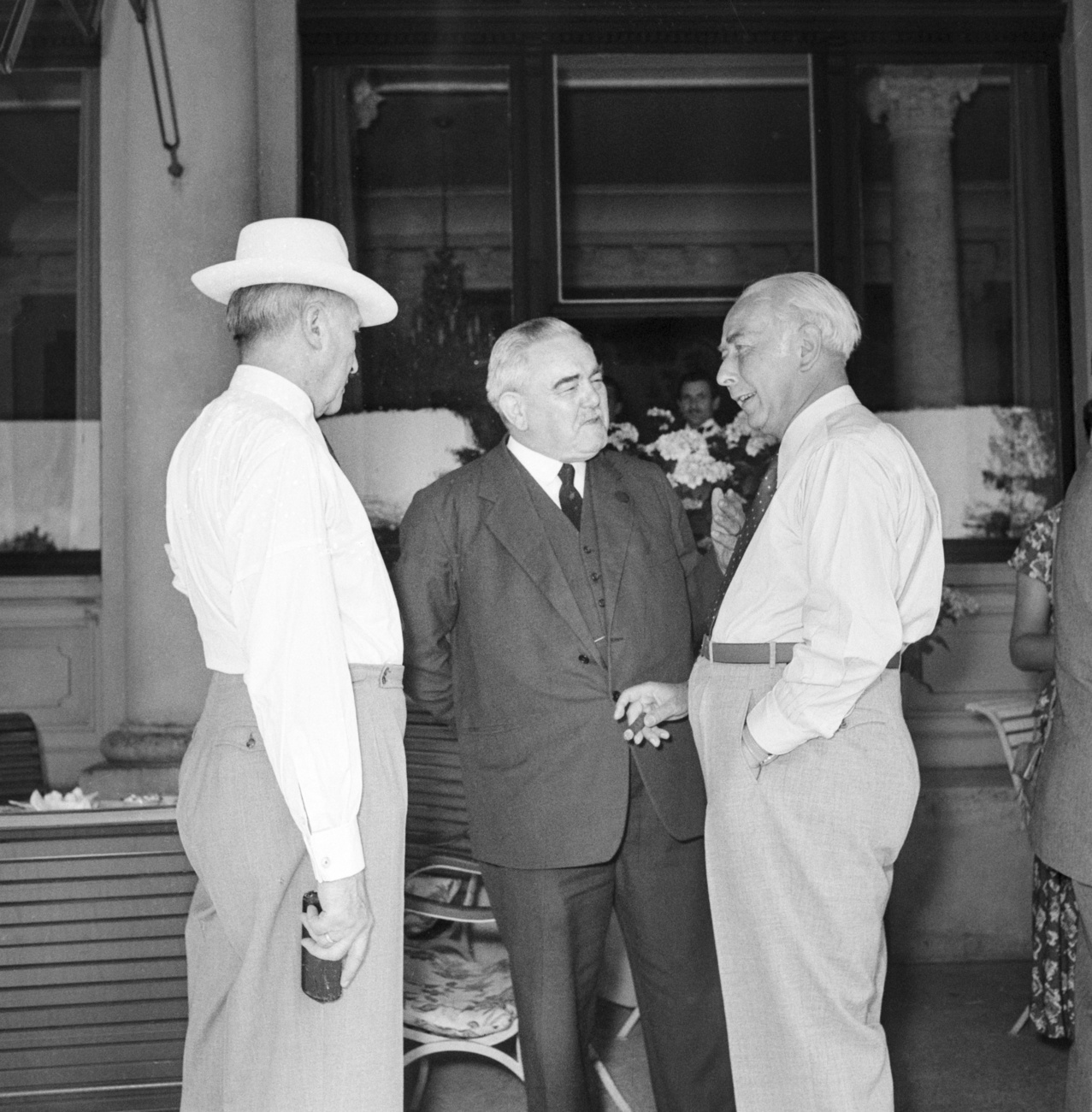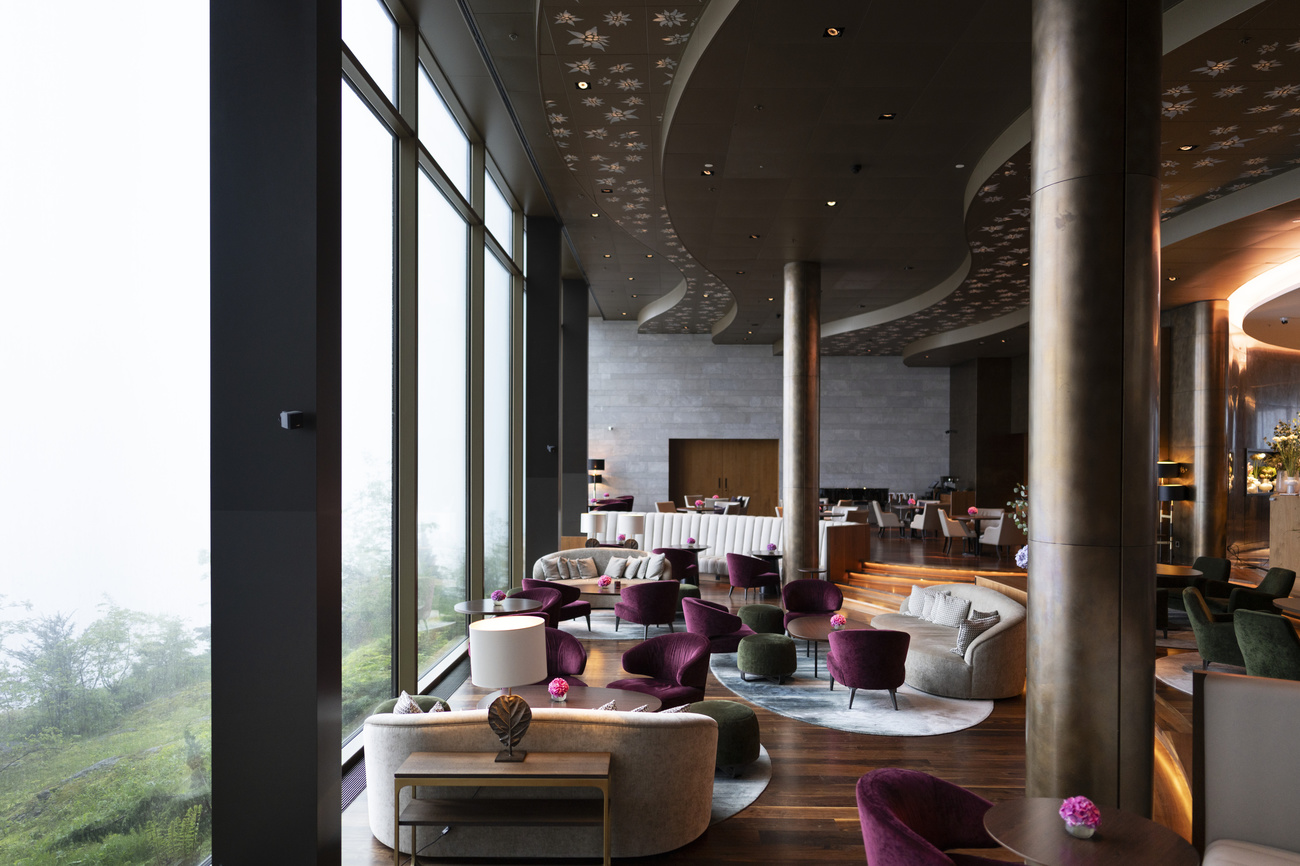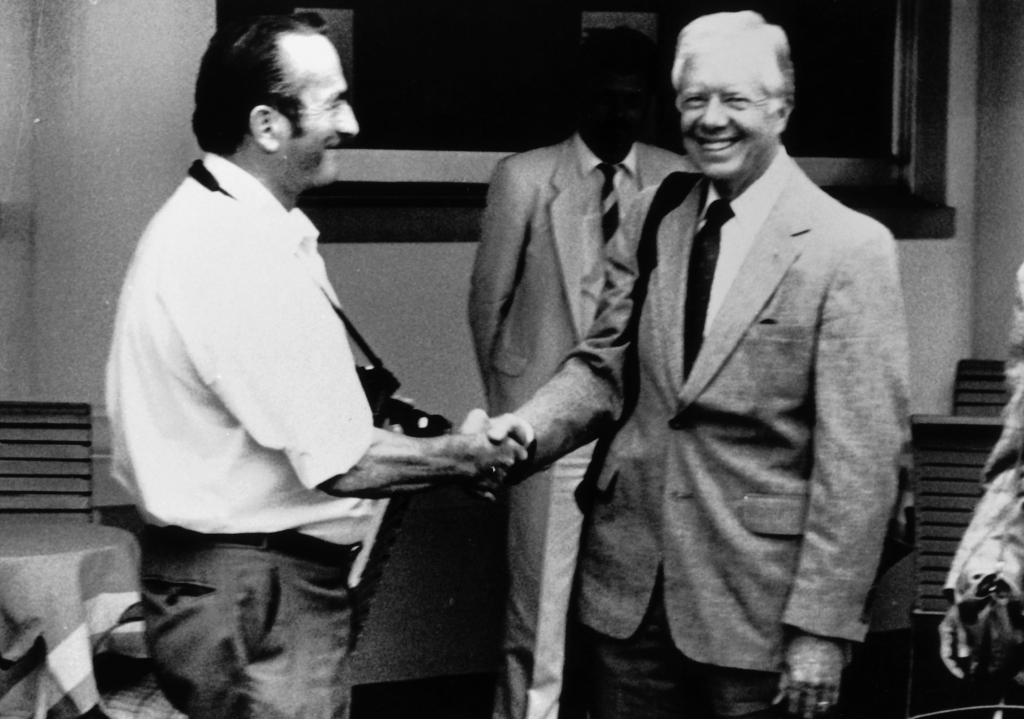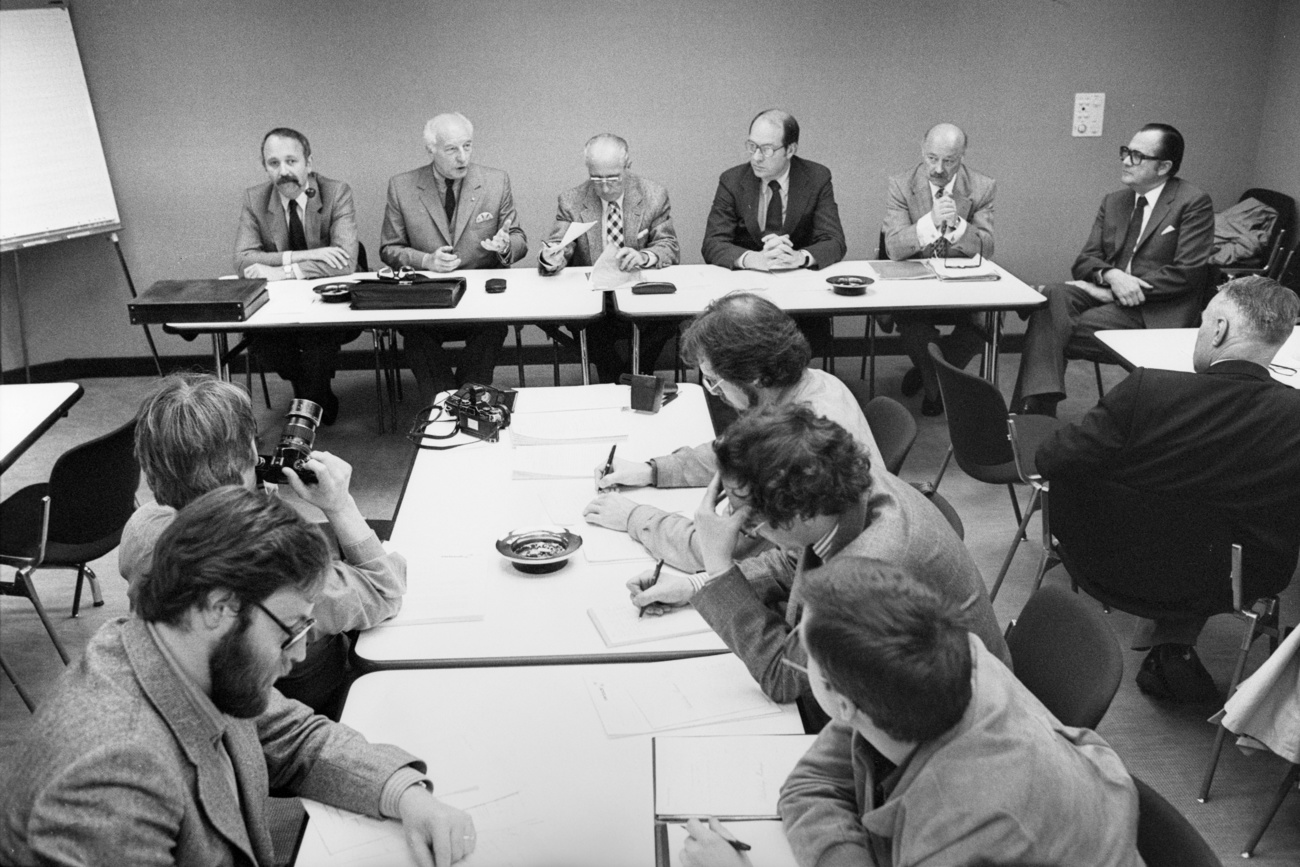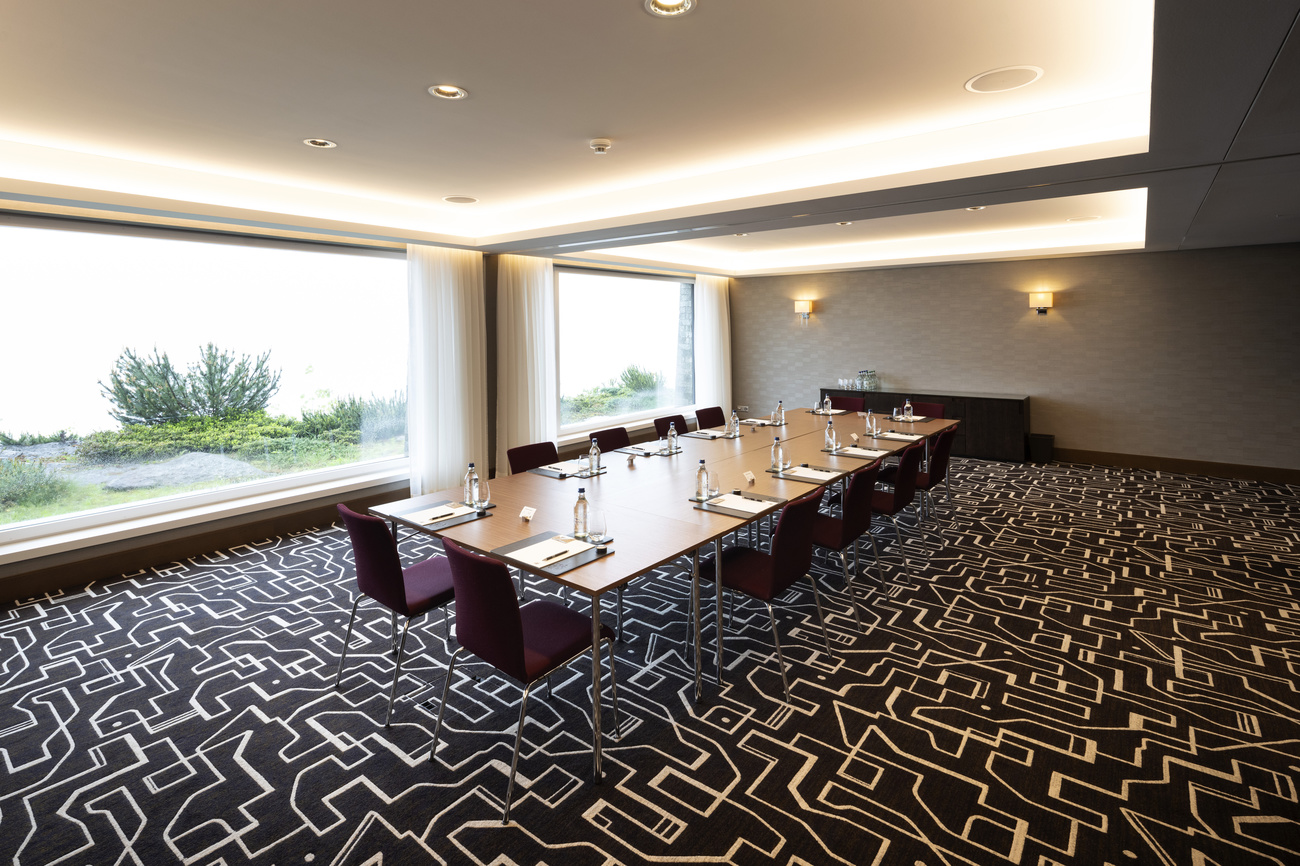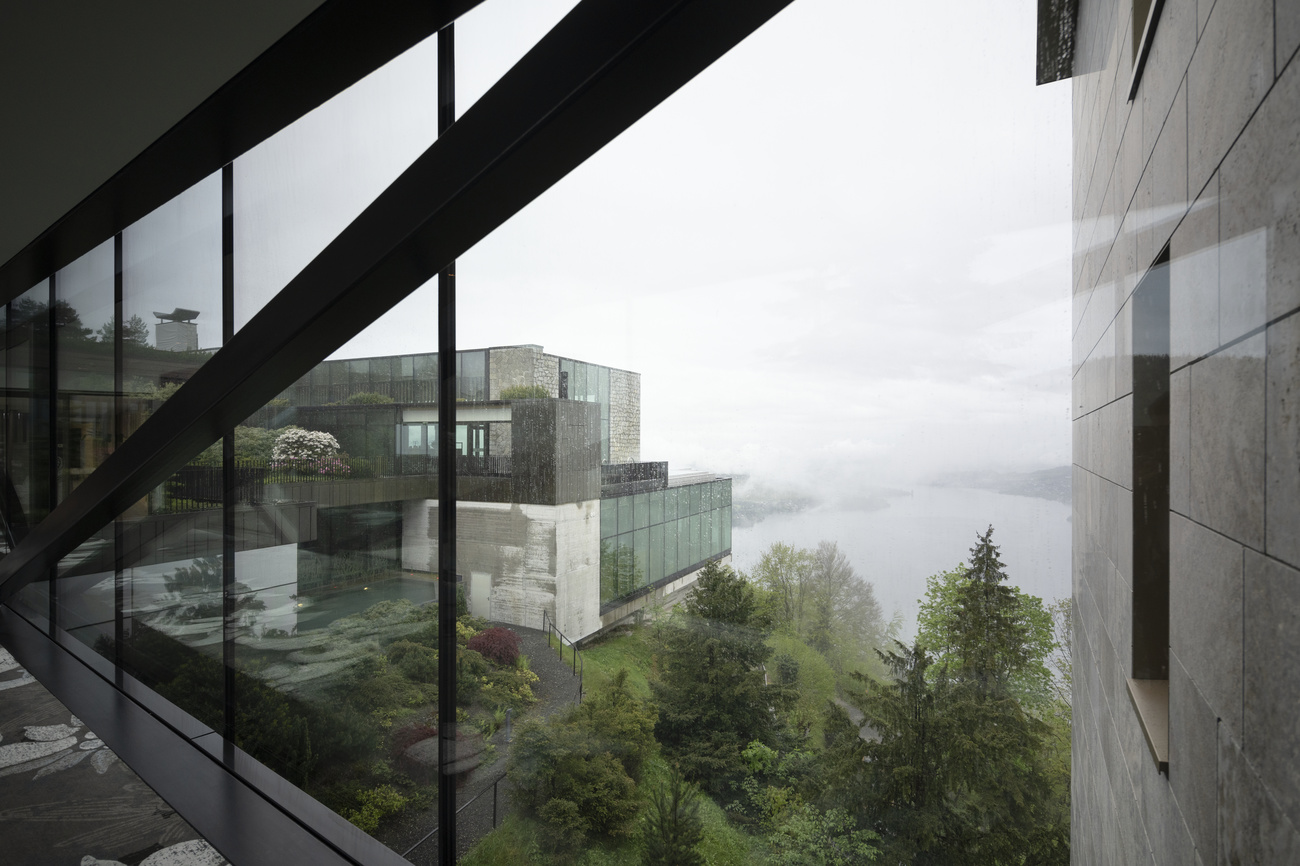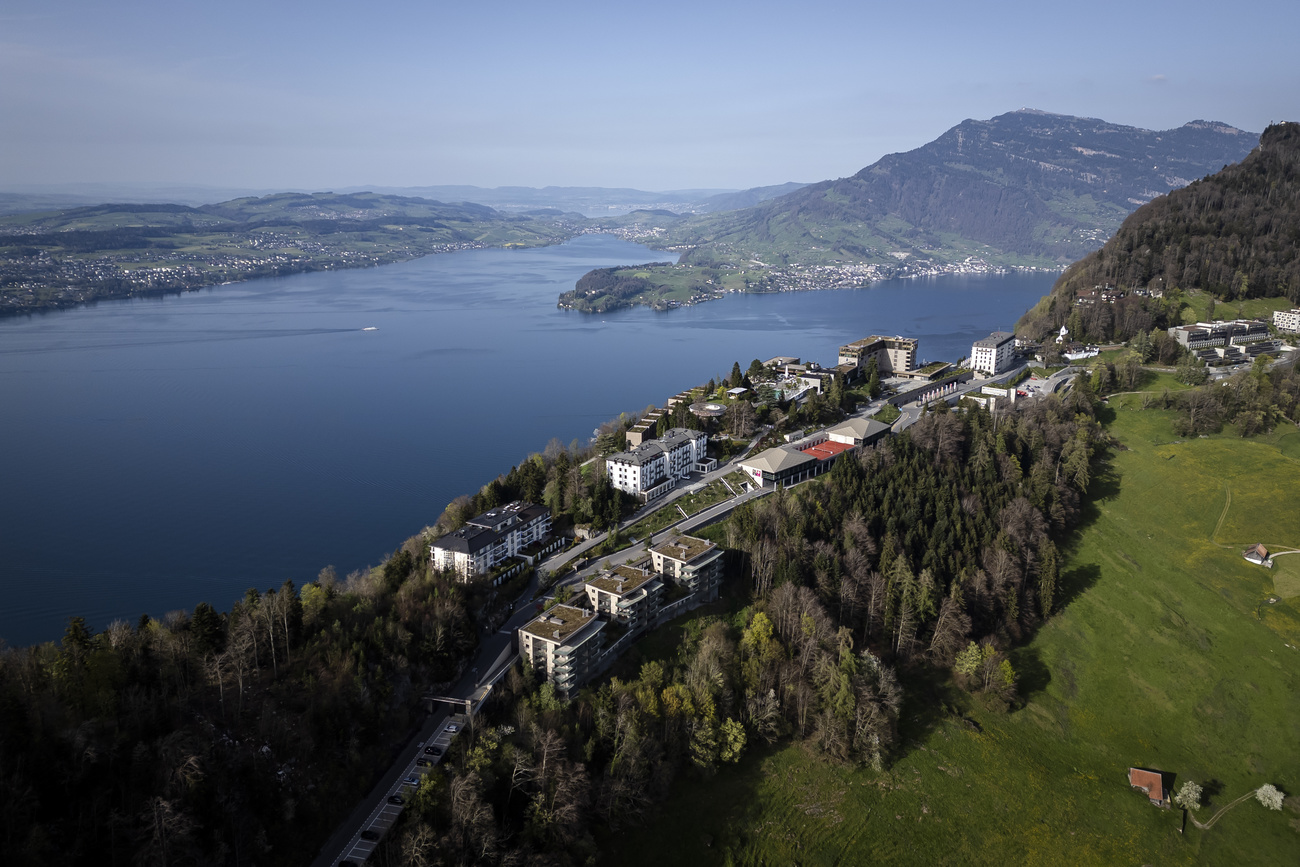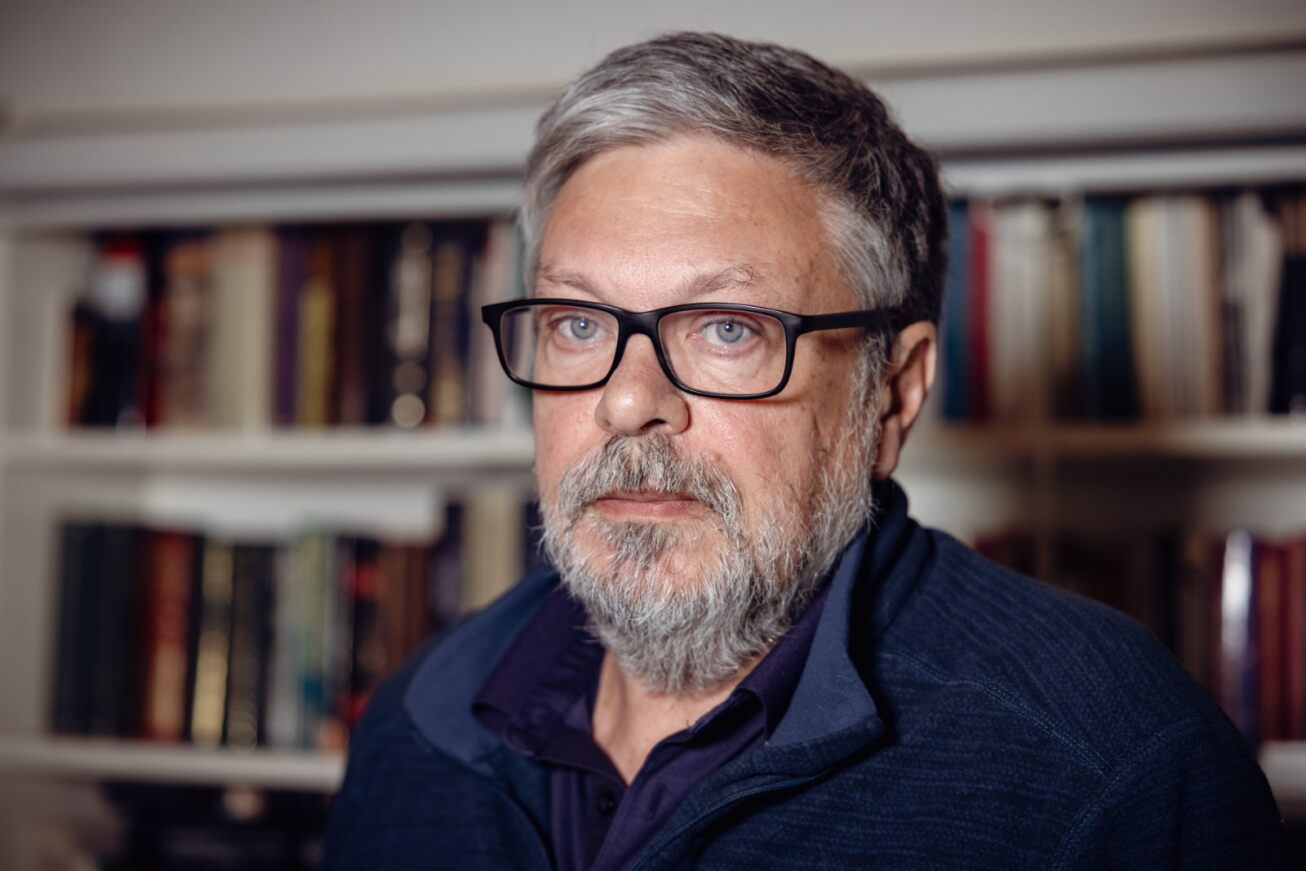Many political heavyweights have met on this mountain in central Switzerland.
Keystone/Urs Hubacher
The Bürgenstock hotel complex overlooking Lake Lucerne, where the Ukraine peace conference will take place on June 15 and 16, has a long history of high-level political meetings. Its location guarantees security and discretion and was also a long-time favourite of film stars and other celebrities.
Nestled on a rocky ridge straddling cantons Lucerne and Nidwalden, the hotel is surrounded by the mountains of central Switzerland. It is a landscape of water, forests, meadows, villages and towns, sometimes fog.
This is postcard Switzerland. The Bürgenstock is like an enchanted mountain, a haven of peace secluded from the world – yet also permeated by its fears. Worthy of a James Bond film, the site is both a hub of global conspiracies and an elegant venue for get-togethers of the global jet set.
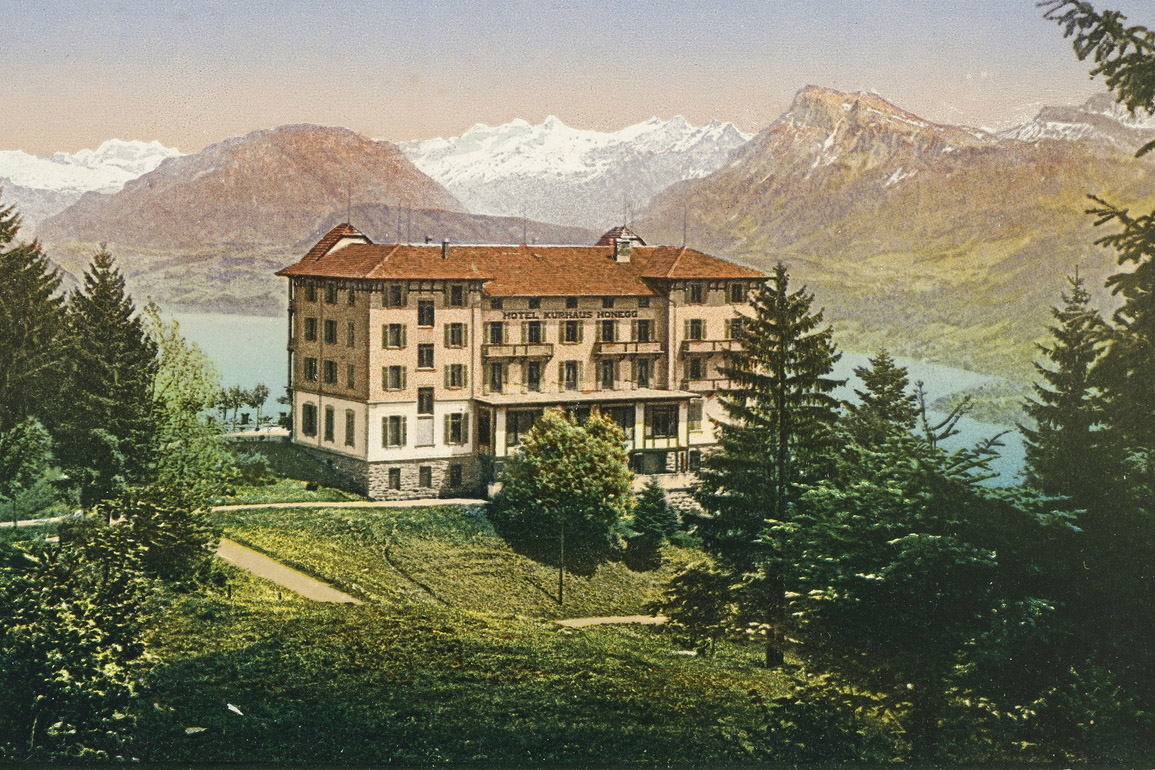
The Hotel Kurhaus Honegg on the Bürgenstock in canton Nidwalden around 1900.
Keystone/Photochrom
Like the Schatzalp hotel-sanatorium in Davos, which inspired Thomas Mann to write his novel The Magic Mountain, the Bürgenstock resort is also a child of the Belle Époque, the first golden age of Swiss tourism. Built in 1873 on the initiative of two local entrepreneurs, the Grand Hotel Bürgenstock was the first link in a chain of luxury hotels that stretched from Switzerland through Italy to Egypt.
High society getaway
The two world wars led to crises and changes of ownership, but after the Second World War the Bürgenstock once more became a favourite destination for international high society. Audrey Hepburn got married in the hotel chapel in 1954; Sofia Loren and her husband Carlo Ponti rented a chalet nearby; Sean Connery stayed at the hotel during the shooting of the Swiss scenes of Goldfinger.
But the luxury resort did not just attract film stars. In the early 1950s, German Chancellor Konrad Adenauer spent several summer holidays here, meeting his ministers and pulling the strings of government. It was from here that, in 1950, he followed the negotiations on the Schumann Plan, which was to lay the foundations for European integration.
That same summer, the hotel also hosted another prominent figure in international politics: Chaim Weizmann, the first president of the State of Israel. This was an uncomfortable proximity for the German chancellor, barely five years after the end of the Second World War and the Holocaust. The two statesmen kept their distance. It was only ten years later that Adenauer and Israeli Prime Minister David Ben-Gurion held an official meeting, at the Waldorf-Astoria Hotel in New York.
Discreet meetings on the mountain
The list of politicians who stayed at the Bürgenstock in the second half of the 20th century is long. It includes Ben-Gurion himself, Golda Meir, Israel’s foreign minister and later prime minister, Indian Prime Minister Jawaharlal Nehru and his daughter Indira Gandhi, Syrian president Hafez al-Assad, the future US president Jimmy Carter and many more.
More
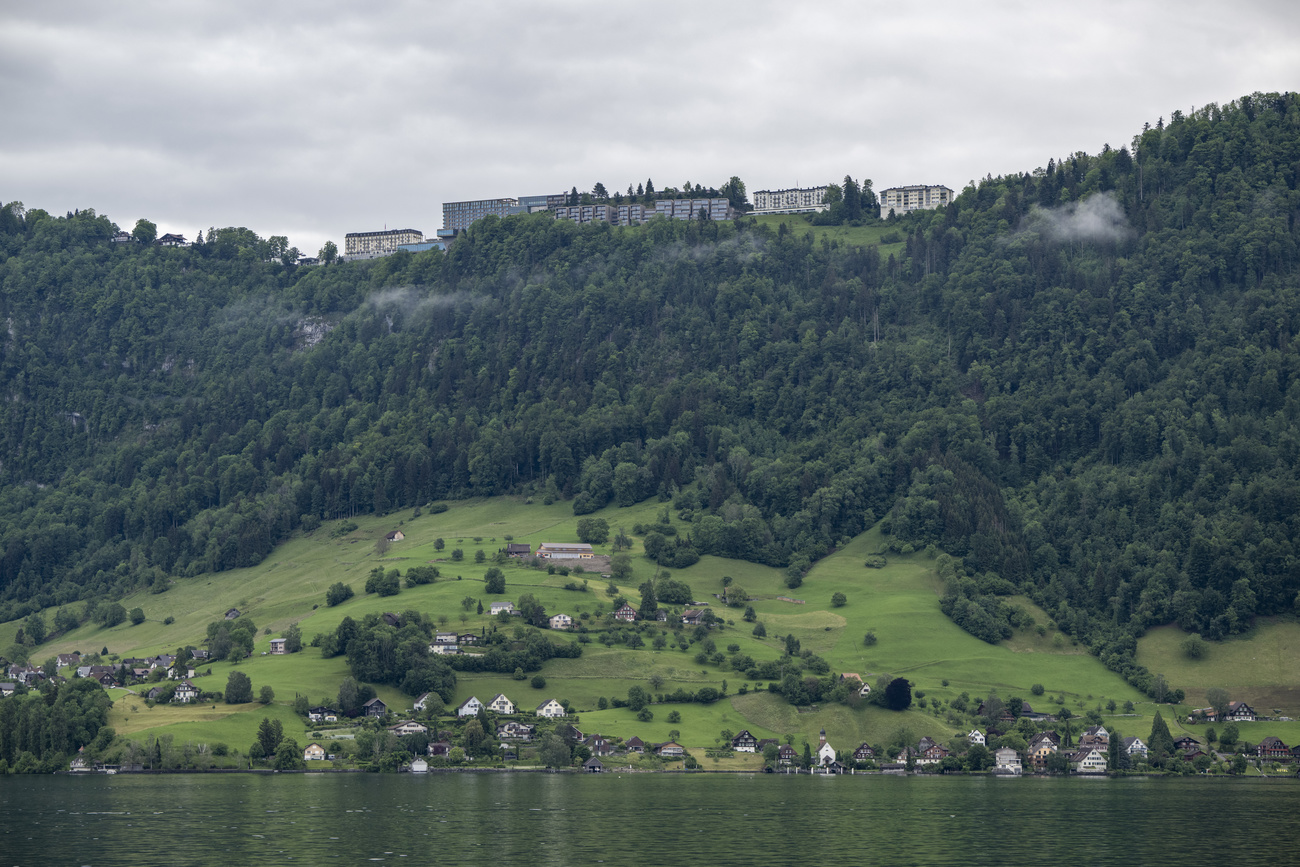
More
The latest on Ukraine peace conference in Switzerland
Some of these famous names took part in the meetings that helped build the Bürgenstock’s reputation as a venue for exclusive international gatherings. In 1960, 1981 and 1995, the resort hosted three conferences of the so-called Bilderberg Group (named after the Dutch hotel where the first conference was held in 1954).
The group, which brings together leading figures from politics, business, the military and academia, was set up to foster cooperation between the United States and Western Europe. The topics discussed and the participants are confidential, and the meetings are swathed in an aura of secrecy that gives conspiracy theorists a field day. But they also attest to the discretion and security of the Bürgenstock.
More
Secluded from the world
“It’s a perfect place for closed-door conferences with high security requirements,” wroteExternal link historian Evelyne Lüthi-Graf in the Neue Zürcher Zeitung newspaper. The hotel complex can be reached only via a winding road or by funicular railway from the lakeshore. It’s also not far from Zurich Airport.
Swiss politics also occasionally avails itself of the resort’s atmosphere and facilities. In September 1969 the Swiss parliament’s foreign policy committee metExternal link various foreign ministry representatives, including Federal Councillor Willy Spühler, to discuss the matter of Switzerland’s relationship with the United Nations.
Most of those present recognised the growing importance of being part of international forums, but they were also aware of the general public’s scepticism. The debate dragged on for years, and in 1986 three-quarters of voters rejected UN membership for Switzerland in a referendum. This did not put the issue to bed, however, and ten years later it was back on the Swiss political agenda.
More
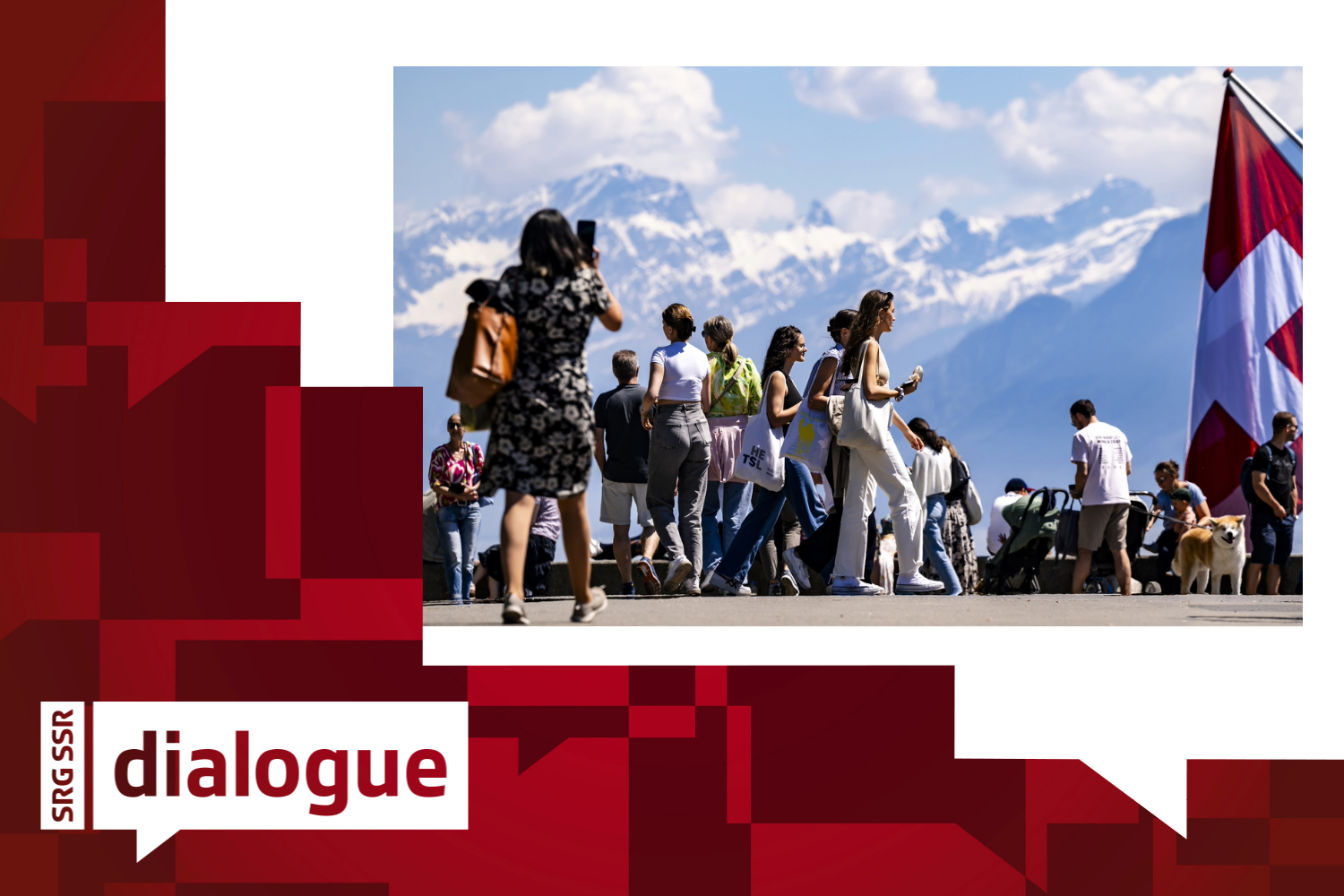
More
How are you? What is on your mind? Take part in our big survey
Diplomatic highs and lows
In March 2002, Switzerland’s accession to the UN was accepted in another referendum. Two months earlier, Swiss diplomacy, with the support of the United States, had scored a success often cited as an example of the effectiveness of Switzerland’s traditional good offices.
After months of contacts and mediation, representatives of the Sudanese government and the Sudan People’s Liberation Army (SPLA) met at the Bürgenstock and signed a ceasefire agreement in the conflict between the north and south of the country in January 2002. This was a first step towards peace and the independence of South Sudan, which was declared in 2011.
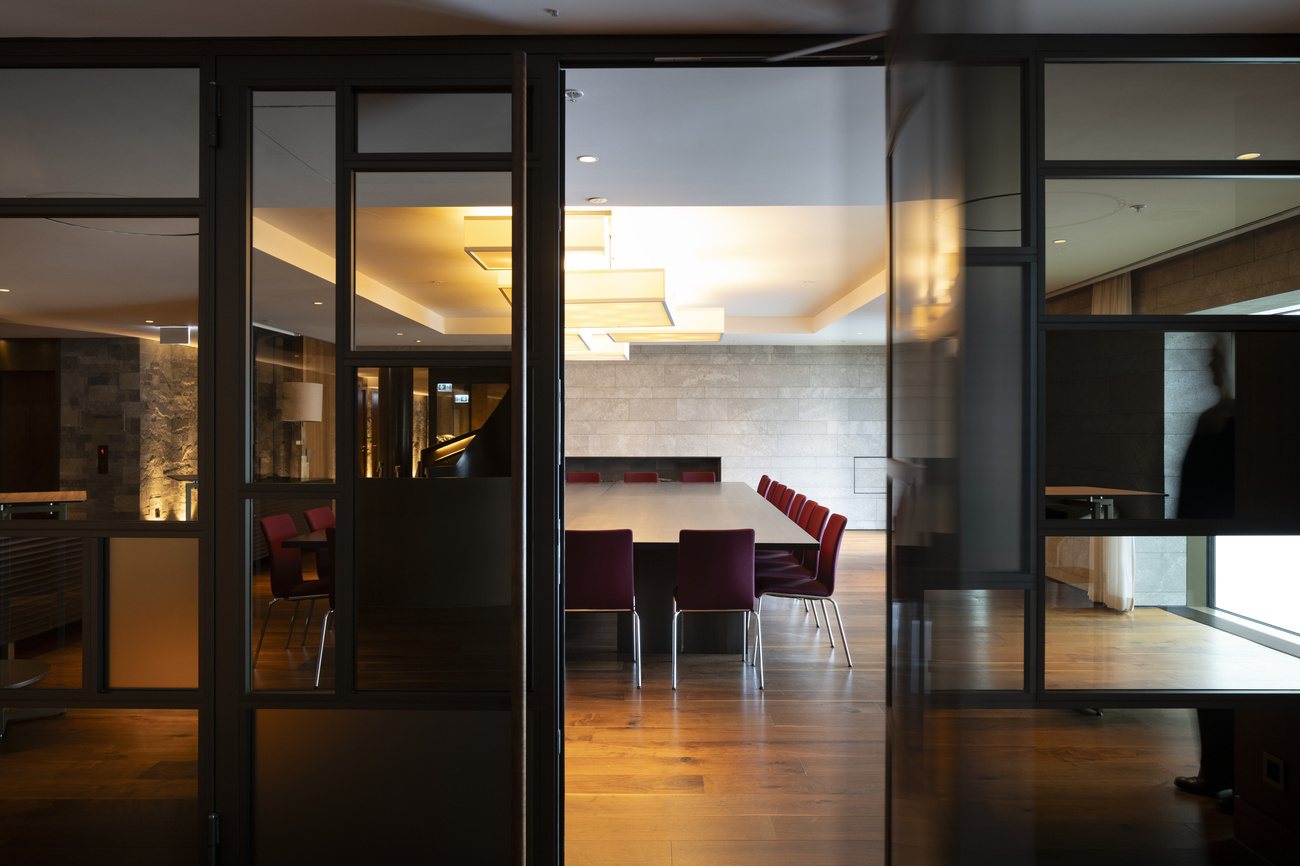
Switzerland has invited over 160 delegations. One month before the conference, around 60 countries have confirmed their participation, half of them from Europe, the other half from outside Europe.
Keystone/Gaetan Bally
On the other hand, the attempt by then UN Secretary-General Kofi Annan in 2004 to negotiate the reunification of the island of Cyprus was not crowned with such success. The heads of government of Greece and Turkey, as well as Greek Cypriot and Turkish Cypriot representatives, were invited to the Bürgenstock to reach an accord on a Swiss-inspired federal constitution. However, the proposal was rejected at the ballot box by a large majority of Greek Cypriots the same year.
More
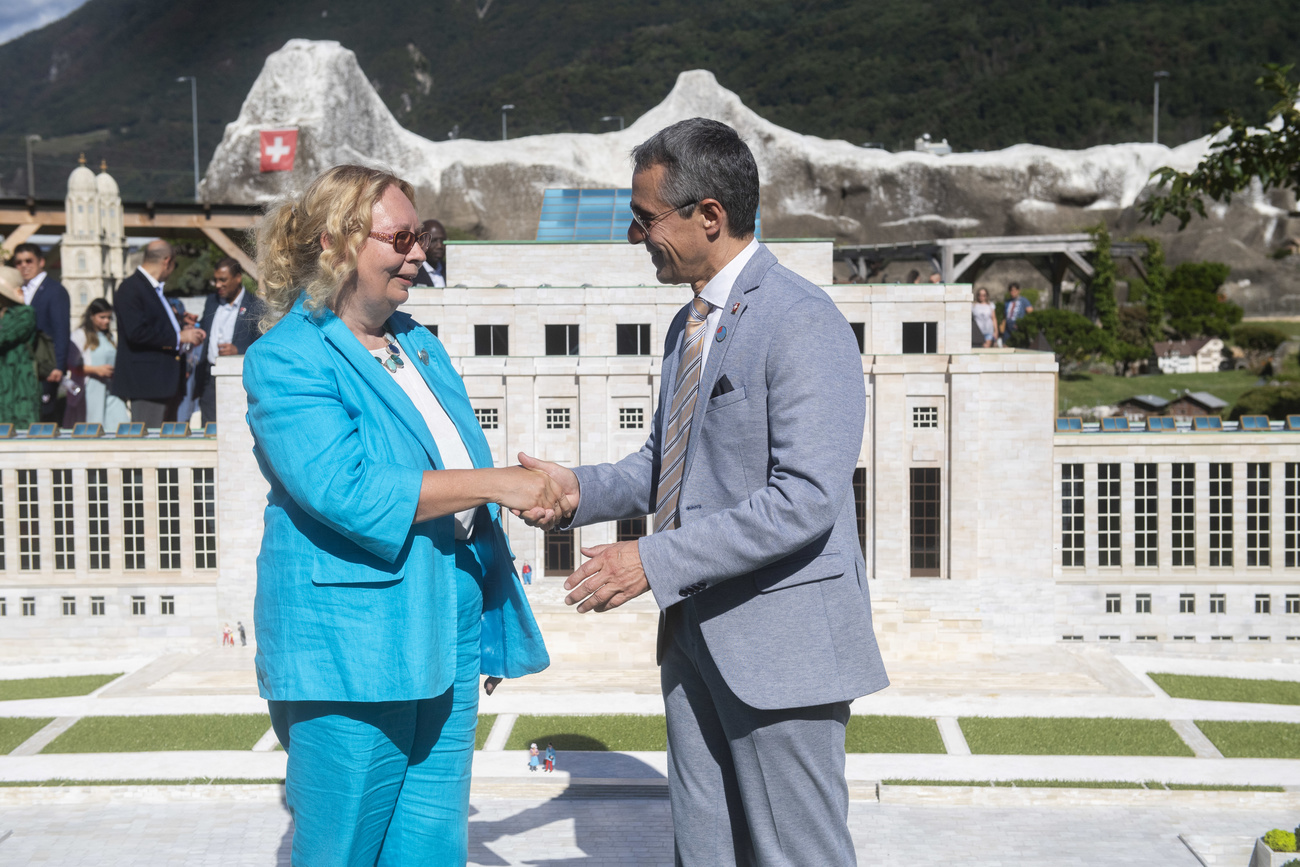
More
The bumpy path of Switzerland’s UN membership
In the meantime, after a long period of crisis, the resort was bought in 2008 by Katara Hospitality, a hotel chain controlled by Qatar’s sovereign wealth fund. The new proprietor invested CHF500 million ($550 million) in renovating the complex. Despite this ownership, the Arab country has nothing to do with the organisation of the forthcoming conference on Ukraine, as the Swiss authorities are at pains to stress.
Edited by Daniele Mariani. Adapted from German by Julia Bassam/ts
Our weekly newsletter on foreign affairs: Switzerland in a fast-moving world. Join us to follow the latest Swiss foreign policy developments. We offer the perfect immersive package.
External Content

